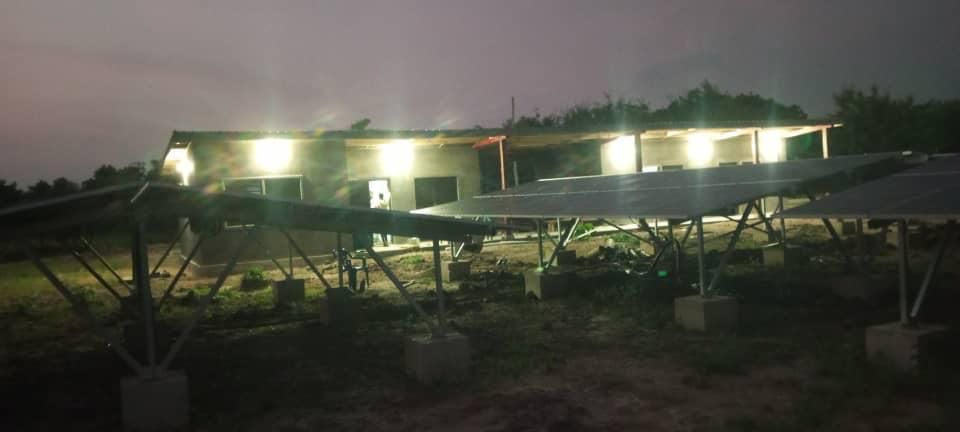Albert Oppong-Ansah, GNA Special Correspondent (Courtesy: Energy Ministry, New Narratives)
Baku, Nov. 15, GNA – The government will commission a mini-grid on November 28, 2024, to provide electricity and boost business activities in three island communities within the Ada East Municipal Assembly of the Greater Accra Region.
The 250-kilowatt facility, powered by state-of-the-art technology, will supply uninterrupted electricity to over 6,000 island residents, with funding support from the Swiss Government.
Mr. Seth Mahu, the Director of Renewable Energy at the Ministry of Energy, disclosed this to the Ghana News Agency on the sidelines of the ongoing COP29 in Baku, Azerbaijan.
He noted that the facility would enhance economic and social activities, particularly in the tourism and hospitality sectors.
Mr. Mahu said the initiative, along with others scheduled for completion by the end of the year, would support Ghana’s efforts to achieve universal electrification access.
“With the coming on stream of about 60 megawatts (MW) solar projects-10MW at Yendi, and 50MW at Bui Power Authority’s Generating Station this year, Ghana’s renewable energy installed capacity will increase to close to about 260 MW” he stated.
Mr. Mahu noted that the total installed capacity of the mini-grid would account for approximately 4.8 percent of the total modern renewable energy (wind, solar) in the country’s energy generation mix.
“Keeping in mind the target of 10 per cent by 2030, we will be able to meet that and probably exceed it looking at the number of projects underway and those coming on stream. Our renewable energy capacity may shoot to almost about 1,000 MW or even 1,400 MW by 2030,” he said.
Mr. Mahu mentioned that all the projects contribute to the ongoing global conversation on sustainability, improving health, and reducing emissions, which renewable energy helps achieve.
“We need to implement measures that will help keep temperatures from going up, and technologies such as solar energy, wind energy, hydro, thermal, gas-fired thermal, nuclear power, e-mobility which are very low-carbon energy technologies, will contribute significantly towards addressing these global goals,” he said.

Mr. Mahu stated that the government was committed to electrifying all 200 islands and 2,000 lakeside communities through mini-grid systems, benefiting over a quarter of a million people in the long term.
In the medium term, by 2030, the government aims to provide electricity to over 150 island communities through smart mini-grid electrification systems.
With significant infrastructure and the necessary legal regulations in place, Ghana is positioned to tap into its modern and mature renewable energy sources, including solar, waste-to-energy, tidal, and wind power.
Ghana is also a member of the Accelerated Partnership for Renewables in Africa (APRA), a collaborative initiative between African governments and international stakeholders focused on accelerating renewable energy adoption across the continent.
GNA